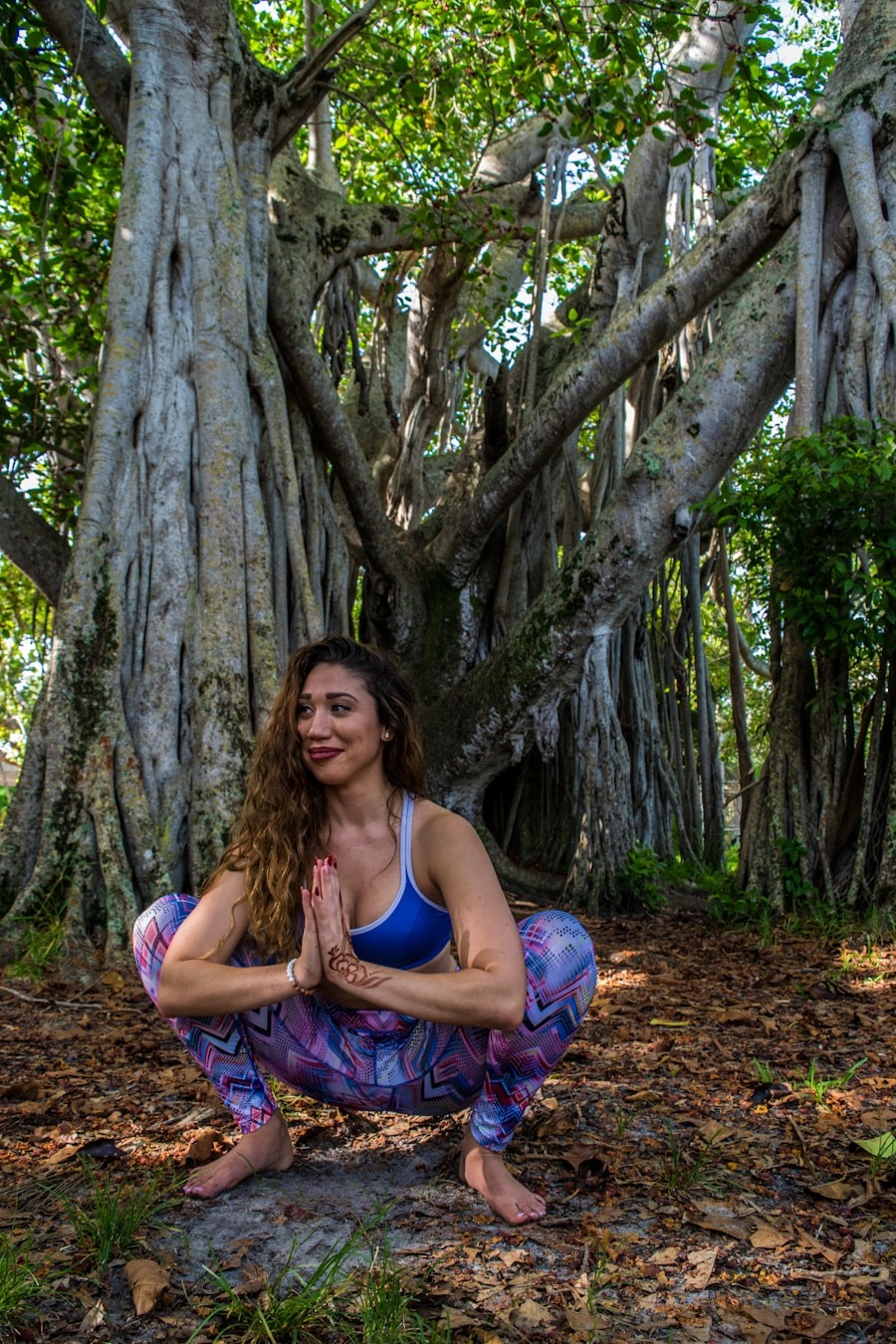The philosophy of yoga is a profound and intricate system of thought that extends far beyond the physical postures commonly associated with the practice. Rooted in ancient Indian traditions, yoga encompasses a holistic approach to life, integrating the mind, body, and spirit. The foundational texts of yoga, such as the Yoga Sutras of Patanjali, outline an eightfold path known as Ashtanga, which serves as a guide for personal development and spiritual growth.
This path includes ethical precepts (Yamas and Niyamas), physical practices (Asana), breath control (Pranayama), sensory withdrawal (Pratyahara), concentration (Dharana), meditation (Dhyana), and ultimately, enlightenment (Samadhi). Each of these components interconnects, creating a comprehensive framework for understanding oneself and the universe. At its core, yoga emphasizes the importance of self-realization and the pursuit of inner peace.
The practice encourages individuals to explore their true nature, transcending the limitations imposed by societal expectations and personal fears. This journey often involves confronting uncomfortable truths about oneself, leading to a deeper understanding of one’s thoughts, emotions, and behaviors. By engaging with the philosophical aspects of yoga, practitioners can cultivate a sense of purpose and direction in their lives, fostering resilience in the face of challenges.
The teachings encourage a shift from external validation to internal fulfillment, promoting a lifestyle that prioritizes authenticity and self-acceptance.
Key Takeaways
- Yoga is a philosophy that emphasizes the union of mind, body, and spirit, and aims to achieve a state of balance and harmony.
- Mindfulness and meditation are key practices in yoga that help individuals to cultivate present moment awareness and inner peace.
- Self-awareness and emotional regulation are important aspects of yoga that enable individuals to understand and manage their thoughts, emotions, and behaviors.
- Embracing non-attachment and letting go is a fundamental principle in yoga that encourages individuals to release attachment to outcomes and cultivate a sense of inner freedom.
- Nurturing positive relationships and compassion is an essential part of yoga philosophy, as it promotes connection, empathy, and kindness towards oneself and others.
- Creating a balanced lifestyle through yoga involves integrating physical movement, mindfulness, and self-care practices into daily routines to promote overall well-being.
Practicing Mindfulness and Meditation
Mindfulness and meditation are integral components of yoga that enhance self-awareness and promote mental clarity. Mindfulness involves being fully present in the moment, observing thoughts and feelings without judgment. This practice can be cultivated through various techniques, such as mindful breathing, body scans, or simply paying attention to one’s surroundings.
By anchoring oneself in the present, individuals can reduce anxiety and stress, which often stem from ruminating on past events or worrying about the future. The act of being mindful allows practitioners to experience life more vividly, fostering a deeper appreciation for everyday moments. Meditation, on the other hand, is a more structured practice that often involves focusing the mind to achieve a state of calm and clarity.
There are numerous forms of meditation, including guided visualization, mantra repetition, and loving-kindness meditation. Each technique offers unique benefits; for instance, loving-kindness meditation cultivates compassion towards oneself and others, while mantra meditation can enhance concentration and focus. Regular meditation practice has been shown to alter brain structure and function, leading to improved emotional regulation and cognitive flexibility.
As individuals develop their meditation practice, they often find that they can navigate life’s challenges with greater ease and equanimity.
Cultivating Self-Awareness and Emotional Regulation

Self-awareness is a cornerstone of personal growth and emotional intelligence. Through yoga and its associated practices, individuals can develop a heightened sense of awareness regarding their thoughts, feelings, and behaviors. This process often begins with observing one’s reactions during yoga practice—how the body feels in different postures, how the mind wanders during meditation, or how emotions arise in response to various stimuli.
By cultivating this awareness on the mat, practitioners can translate these insights into their daily lives, recognizing patterns that may contribute to stress or dissatisfaction. Emotional regulation is closely linked to self-awareness; it involves managing one’s emotional responses in a healthy manner. Yoga provides tools for emotional regulation through breathwork and mindfulness techniques.
For example, when faced with anger or frustration, practitioners can utilize deep breathing exercises to calm the nervous system and create space for thoughtful responses rather than impulsive reactions. Additionally, yoga encourages individuals to embrace their emotions without judgment, allowing them to process feelings rather than suppress them. This acceptance fosters resilience and empowers individuals to respond to life’s challenges with greater composure.
Embracing Non-Attachment and Letting Go
The concept of non-attachment is central to many philosophical traditions within yoga. It encourages individuals to release their grip on outcomes and material possessions, fostering a sense of freedom and inner peace. Non-attachment does not imply indifference; rather, it invites practitioners to engage fully with life while remaining open to change and impermanence.
This perspective can be particularly liberating in a world that often emphasizes achievement and accumulation as measures of success. By practicing non-attachment, individuals can cultivate a sense of contentment that is not dependent on external circumstances. Letting go is an essential aspect of embracing non-attachment.
This process often involves releasing limiting beliefs, past traumas, or unhealthy relationships that no longer serve one’s growth.
Techniques such as restorative yoga or yin yoga can facilitate deep relaxation and introspection, allowing individuals to confront what they need to let go of in order to move forward.
By embracing non-attachment and letting go, practitioners can experience profound transformation and a renewed sense of purpose.
Nurturing Positive Relationships and Compassion
The practice of yoga extends beyond the individual; it encompasses relationships with others and the world at large. Nurturing positive relationships is essential for emotional well-being and personal growth. Yoga teaches the importance of compassion—both towards oneself and others—as a means of fostering connection and understanding.
Compassionate interactions can lead to deeper bonds with friends, family, and even strangers, creating a supportive community that enhances overall quality of life. Practicing compassion involves recognizing the shared human experience; everyone faces struggles and challenges. By cultivating empathy through yoga practices such as loving-kindness meditation, individuals can develop a greater appreciation for others’ perspectives.
This shift in mindset encourages acts of kindness and understanding in daily interactions. Furthermore, positive relationships can serve as a mirror for self-reflection; through our connections with others, we gain insights into our own behaviors and beliefs. By nurturing these relationships with compassion and understanding, individuals can create a more harmonious environment that supports collective growth.
Creating a Balanced Lifestyle through Yoga

Elements of a Balanced Lifestyle
A balanced lifestyle involves not only regular physical practice but also mindful eating habits, sufficient rest, social connections, and time for self-reflection. By integrating these elements into daily routines, practitioners can cultivate a sense of harmony that permeates all areas of life.
Listening to Your Body
Yoga also emphasizes the importance of listening to one’s body and honoring its needs. This intuitive approach encourages individuals to engage in practices that resonate with them personally rather than adhering strictly to external standards or expectations. For instance, some may find joy in vigorous vinyasa flows while others may prefer gentle restorative sessions.
A Sustainable Practice for a Fulfilling Existence
By honoring these preferences, practitioners can create a sustainable practice that nurtures their unique journey toward balance. Ultimately, yoga serves as a powerful tool for fostering a lifestyle that prioritizes well-being in all its forms—physical vitality, emotional resilience, mental clarity, and spiritual connection—leading to a more fulfilling existence overall.
If you are interested in exploring the interconnectedness of different elements, you may also enjoy reading about microbial interactions, symbiotic relationships, and pathogenicity. This article delves into the intricate relationships between microorganisms and their hosts, shedding light on the balance between beneficial and harmful interactions. Check it out here.
FAQs
What are the principles of yoga for a healthy mind?
The principles of yoga for a healthy mind include practicing mindfulness, meditation, breathing exercises, and physical postures (asanas) to promote mental well-being.
How does yoga promote a healthy mind?
Yoga promotes a healthy mind by reducing stress, anxiety, and depression, improving focus and concentration, and enhancing overall mental clarity and emotional balance.
What are some specific yoga practices for a healthy mind?
Specific yoga practices for a healthy mind include pranayama (breathing exercises), dhyana (meditation), asanas (physical postures), and yoga nidra (deep relaxation).
Can yoga help with mental health conditions?
Yes, yoga has been shown to be beneficial for individuals with mental health conditions such as depression, anxiety, PTSD, and ADHD. It can help manage symptoms and improve overall well-being.
Is yoga suitable for everyone for a healthy mind?
Yoga can be suitable for people of all ages and fitness levels. However, individuals with certain medical conditions or physical limitations should consult with a healthcare professional before starting a yoga practice.
























+ There are no comments
Add yours